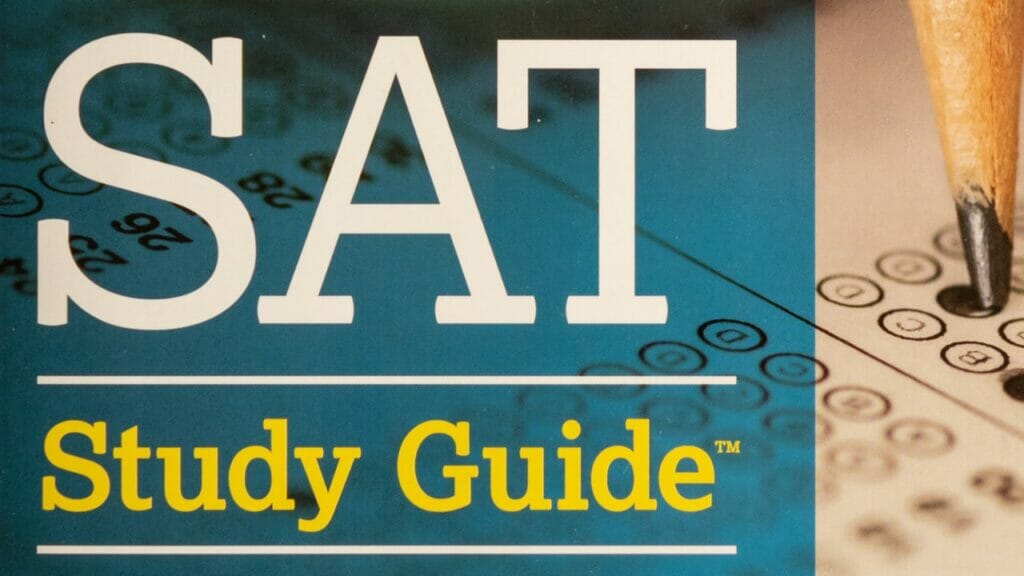The College Scholastic Ability Test (CSAT), officially known as the Suneung, is the primary standardized examination used for university admissions in South Korea. The Korean SAT exam is a critical component of the academic system, as scores largely determine university placement and professional opportunities. Due to its importance, the national government implements special measures on exam day, such as adjusting business hours and redirecting traffic, to ensure all candidates arrive at their testing centers without delay.
For the 2026 academic cycle, the Korean SAT exam follows the official framework established by the Korea Institute for Curriculum and Evaluation (KICE). Understanding the technical structure and requirements of this assessment is the first step in developing an effective preparation strategy.
This guide provides a factual breakdown of the Korean SAT exam to help you prepare for the 2026 testing cycle with clarity and purpose.
What Is the Korean SAT Exam (CSAT)?
The College Scholastic Ability Test (CSAT) is South Korea’s national standardized Korean entrance exam for university admissions. The CSAT full form represents a comprehensive evaluation of academic ability required for higher education. It is recognized as one of the most rigorous examinations globally, directly impacting a student’s chances of gaining entry to prestigious Korean universities
Overview of Korean CSAT (Suneung) and Its Importance
The Korean CSAT exam is a competitive full-day exam taken annually by high school seniors and other candidates aspiring for university admission. Due to South Korea’s strong focus on academic excellence, the test score is vital: it determines university placements, South Korea scholarship eligibility, and future career opportunities, significantly impacting a student’s entire future trajectory.
For those planning ahead, the Korean SAT date for 2026 is typically in November. The Suneung exam syllabus for 2026 follows the existing CSAT structure as maintained by the Korean Institute for Curriculum and Evaluation (KICE). It follows a specific framework:
- Subject Areas: The test includes Korean Language, Mathematics, English, Korean History, Social or Natural Sciences, and an optional Second Foreign Language.
- Mandatory Sections: Korean History is a required subject for all candidates.
- Exam Structure: The assessment takes approximately 8 hours, including breaks, with strict time limits for each section.
- Difficulty: The exam focuses on deep conceptual understanding and analytical reasoning rather than simple memorization.
Difference Between Korean CSAT and SAT
While both the CSAT exam Korea and the US SAT are university entrance exams, they differ in format, structure, and difficulty. Refer to the following table to understand them better.
| Feature | Korean CSAT (Suneung) | SAT (USA) |
|---|---|---|
| Purpose | Admission to universities in South Korea | University admissions in the USA and worldwide |
| Subjects | Korean, Math, English, Social & Natural Sciences, Second Foreign Language | Reading, Writing & Language, Math (Optional Essay removed in 2021) |
| Scoring System | Scaled scores and percentiles | Scaled score (400-1600) |
| Exam Length | 8 hours (including breaks) | 3 hours |
| Difficulty | Extremely rigorous, high-pressure | Challenging but offers retake flexibility |
Who Needs to Take the Korean CSAT?
The Korean college entrance exam is required for:
- Applications from South Koreans to domestic universities.
- Foreign students applying to South Korean universities.
- Students aiming for government-related careers where CSAT scores may be considered.
CSAT Exam Pattern & Syllabus
The Korean SAT exam follows a standardized structure developed by the Korea Institute for Curriculum and Evaluation (KICE). The korean csat exam assesses a student’s readiness for university through five core subject areas and an optional elective section. For the 2026 academic year, the suneung exam syllabus continues to utilize a “common + elective” system for major subjects, allowing students to tailor the exam to their academic strengths.
| Subject Area | 2026 CSAT Syllabus Details | Exam Pattern |
|---|---|---|
| Korean Language | Common: Reading and Literature. Electives: Choice of “Speech & Writing” or “Language & Media”. | 45 Questions (80 min). |
| Mathematics | Common: Math I and Math II. Electives: Choice of Calculus, Geometry, or Probability & Statistics. | 30 Questions (100 min). |
| English | High-level academic reading and listening. | 45 Questions (70 min). |
| Korean History | Mandatory section covering foundational national history. | 20 Questions (30 min). |
| Inquiry (Social/Science) | Choice of up to 2 subjects from 17 elective options. | 20 Questions per subject (62 min total). |
| Alternative Language | Optional section; choices include German, French, Chinese, etc. | 30 Questions (40 min). |
Korean SAT English Paper Specifics
The Korean SAT English paper is designed to test advanced logical reasoning through the medium of English.
- CSAT exam Format: The Korean English SAT exam consists of 17 listening questions and 28 reading questions.
- No Productive Skills: Unlike some international certifications, there is no direct speaking or writing section.
- Difficulty Level: The Korean SAT English exams are noted for their academic rigor, often featuring complex philosophy and science passages that require deep logical inference.
- Grading: English uses an absolute evaluation system, where a raw score of 90 or higher is required for a Grade 1.
Korean CSAT Exam Duration and Structure
The CSAT lasts approximately 8 hours to cover 5 subjects, including breaks, and is divided into multiple timed sections.
| Subject | Duration | Question Type |
|---|---|---|
| Korean Language and Literature | 80 minutes | Multiple-choice |
| Mathematics | 100 minutes | Multiple-choice |
| English | 70 minutes | Multiple-choice |
| Social Studies/Natural Sciences | 90 minutes | Multiple-choice |
| Second Foreign Language | 40 minutes | Multiple-choice |
Language Options for the CSAT
While the core CSAT sections Korean Language and Mathematics are entirely conducted in Korean, the exam includes one optional subject area where students must select one foreign language or Classical Chinese. This is the only part of the Korean SAT Exam (CSAT) that allows candidates to choose a language other than Korean or English.
The language options for this elective section include:
- German
- French
- Spanish
- Chinese (Mandarin)
- Japanese
- Russian
- Arabic
- Basic Vietnamese
- Classical Chinese (Hanja)
Note:
The entire CSAT, including instructions, reading passages, and non-English sections, is administered strictly in Korean. International applicants are generally required to demonstrate strong Korean proficiency typically through TOPIK as this level of fluency is essential to attempt the Korean Language section and other core subject areas.
Difficulty Level of the Korean SAT Exam (2026 CSAT)
The Korean SAT exam (CSAT) 2026 was difficult mainly because of the language sections. Even though killer questions were removed, many questions were long and took more time to solve.
- Korean SAT English exam: Very difficult in 2026. Only 3.11% of students scored Grade 1 (90+), the lowest level since 2018.
- Korean language section: A tough part of the Korean SAT exam, with the highest standard score reaching 147, showing higher difficulty than previous years.
- Mathematics: More balanced compared to language papers. The top standard score was 139, similar to recent CSAT exams.
Korean SAT 2026: Important Dates
The official Korean SAT (CSAT/Suneung) dates for 2026 are confirmed by the Korean Institute for Curriculum and Evaluation (KICE) closer to the exam. However, the exam follows a highly standardised annual schedule, which allows students to plan well in advance.
- Registration Period: Usually opens in late August and closes in early September. High school students in South Korea typically apply through their schools.
- Final Mock Evaluation: Conducted in early September. This is the last official mock exam before the Suneung and helps finalise question difficulty and assess nationwide performance levels.
- Exam Date: Held every year on the third Thursday of November.
- Result Announcement: Score reports are released in early December, around three weeks after the exam.
Korean SAT Exam 2026: Eligibility & Required Documents
To ensure your application for the Korean SAT exam is successful, you must meet specific academic requirements and submit a precise set of documents.
Eligibility Requirements for Korean SAT Exam
The Korean CSAT exam is open to various candidates, provided they meet one of these criteria:
- High School Seniors: Students currently in their final year of high school (Grade 12).
- High School Graduates: Those who have already completed secondary education and wish to reattempt the exam.
- Equivalent Qualification Holders: Individuals who have passed a high school equivalency exam or completed 12 years of formal education.
- International Students: Foreign nationals who have legal residency in South Korea and meet specific schooling requirements.
Required Documents for CSAT Application
To apply for the Korean SAT (CSAT), you need to submit the following documents:
- Application Form: A completed and signed official form.
- Photographs: Two recent, passport-sized color photos for identification.
- Application Fee Receipt: Proof of payment for the required testing fee.
- Identification Card: A valid, government-issued ID or student ID for identity verification.
- Academic Proof:
- Current Students: Proof of enrollment from your high school principal.
- Graduates: A graduation certificate; if you have moved to a different test district, you must submit the original certificate.
- Vocational Inquiry Certificate (If Applicable): A certificate from the principal confirming completion of at least 86 credits for vocational track students.
- Additional for Foreign Applicants: A valid passport and Alien Registration Card (ARC).
Top Korean CSAT Preparation Strategies & Exam-Day Tips
The College Scholastic Ability Test (CSAT), also known as Suneung, is one of the most challenging and high-stakes exams in South Korea. Proper preparation and strategic planning can help students perform at their best. Here are key strategies and exam-day tips to maximise success.
Here are the effective CSAT preparation strategies for international students:
1. Understand the Exam Format and Subjects
- Familiarise yourself with the CSAT structure, including subject areas like Korean Language, Mathematics, English, and elective subjects.
- Knowing the weightage of each section helps in prioritising study efforts.
2. Create a Study Plan
- Start preparing at least a year in advance with a structured timetable.
- Allocate more time to weaker subjects while maintaining a balance across all sections.
- Include practice tests and mock exams regularly.
3. Use Official and Past Exam Papers
- Solve previous years’ CSAT papers to get a sense of question patterns and difficulty levels.
- Reviewing official mock exams from the Korean Institute for Curriculum and Evaluation (KICE) is crucial.
4. Focus on Time Management
- The CSAT is a timed test, so practice solving questions under exam conditions.
- Learn techniques like skipping difficult questions initially and returning to them later.
5. Strengthen Test-Taking Strategies
- Develop elimination techniques for multiple-choice questions.
- Improve reading speed and comprehension for subjects like Korean and English.
- Practice mental math and shortcut methods for mathematics.
6. Take Care of Your Health
- Maintain a healthy diet and sleep schedule to stay mentally sharp.
- Avoid burnout by incorporating breaks and relaxation activities into study routines.
Exam-Day Tips for CSAT Success
1. Get a Good Night’s Sleep
- Avoid last-minute cramming and ensure at least 7-8 hours of sleep before the exam.
2. Arrive Early at the Test Center
- Test centers open early, so reach well in advance to avoid last-minute stress.
- Know your exam room and seat assignment beforehand.
3. Carry Essential Items
- Bring your admission ticket, identification card, and necessary stationery (approved pens, pencils, and erasers).
- Check the list of allowed materials in advance.
4. Manage Time Wisely
- Stick to the time limit per section to ensure all questions are attempted.
- If stuck on a question, move forward and return to it later.
5. Stay Calm and Focused
- Take deep breaths and stay composed if you feel overwhelmed.
- Trust your preparation and avoid second-guessing answers excessively.
By following these preparation strategies and exam-day tips,
Conclusion
The Korean CSAT (College Scholastic Ability Test) is a vital examination for students in Korea, determining university admissions and influencing academic futures. The CSAT Korea evaluates various subjects, necessitating thorough preparation and strategic study plans.
Reviewing previous years’ Korean CSAT exam papers can assist students in understanding the test format and enhancing their performance. With adequate preparation, students can navigate this challenging examination and gain admission to top universities in South Korea.
Are you preparing for the Korean CSAT? Review previous Korean CSAT exam papers, familiarise yourself with the format of the CSAT, and develop an effective study plan. Begin your SAT prep today with LeapScholar to enhance your chances of success!
Frequently Asked Questions(FAQs)
-
What is the CSAT full form?
The CSAT full form is the College Scholastic Ability Test.
-
What is CSAT exam in Korea?
The CSAT exam in Korea, also known as Suneung, is the national Korean college entrance exam used to determine university placements
-
How important is the CSAT for university admissions?
The Korean CSAT exam is the most critical factor inuniversity admissions. While some universities consider extracurricular activities or interviews, most rely heavily on CSAT scores. A high score can determine a student’s future career opportunities in South Korea.
-
How long is the CSAT Korea exam?
The CSAT Korea lasts 8 hours, with multiple sections and breaks in between. The exam starts early in the morning and finishes by late afternoon. Each section has strict time limits, making time management essential for scoring well.
-
Can international students take the Korean CSAT?
While the Korean CSAT is mainly for domestic students, some international students who want to study in South Korea may take it. However, many universities offer alternative admission routes, such as the Korean Language Proficiency Test (TOPIK) or international qualifications like the SAT or IB.
-
What subjects are tested in the CSAT?
The Korean CSAT exam includes Korean Language, Mathematics, English, Korean History, Social or Natural Sciences, and a Second Foreign Language. Students choose subjects based on their academic focus (humanities or sciences). The difficulty varies, but Mathematics and Korean are generally considered the hardest.
-
Is English tested in the Korean CSAT?
Yes, the CSAT Korea includes an English section, but it focuses on reading comprehension rather than grammar or writing. The section includes Korean CSAT questions that test the ability to understand academic English passages, making it challenging for non-fluent speakers.
-
How does the CSAT compare to the SAT and other exams?
The Korean CSAT is more difficult and intense than the SAT. While the SAT focuses on general reasoning and high school-level knowledge, the CSAT Korea tests in-depth subject knowledge with complex Korean CSAT questions. Unlike the SAT, CSAT scores directly determine university admissions in South Korea.
-
When is the CSAT conducted in Korea?
The CSAT Korea exam is held annually on the third Thursday of November. It is a national event, with major cities adjusting traffic and work schedules to accommodate test-takers.
-
What is the difficulty level of CSAT?
The Korean CSAT exam is considered one of the toughest standardised tests in the world. It requires deep conceptual understanding and time management. Some sections, like Mathematics and Korean Language, have complex CSAT Korea question papers that test advanced reasoning skills. The pressure is high since CSAT scores directly impact university admissions.
-
How is the CSAT structured?
The CSAT Korea exam consists of multiple sections: Korean Language, Mathematics, English, Korean History, Social Studies/Natural Sciences, and a Second Foreign Language. Each section includes Korean CSAT questions designed to test comprehension, problem-solving, and analytical skills. The difficulty varies across subjects, with mathematics and Korean often being the most challenging.


















Have Questions? Get Guidance to reach your Dream University
Connect with India's finest counsellors and biggest study abroad community.
Get Guidance